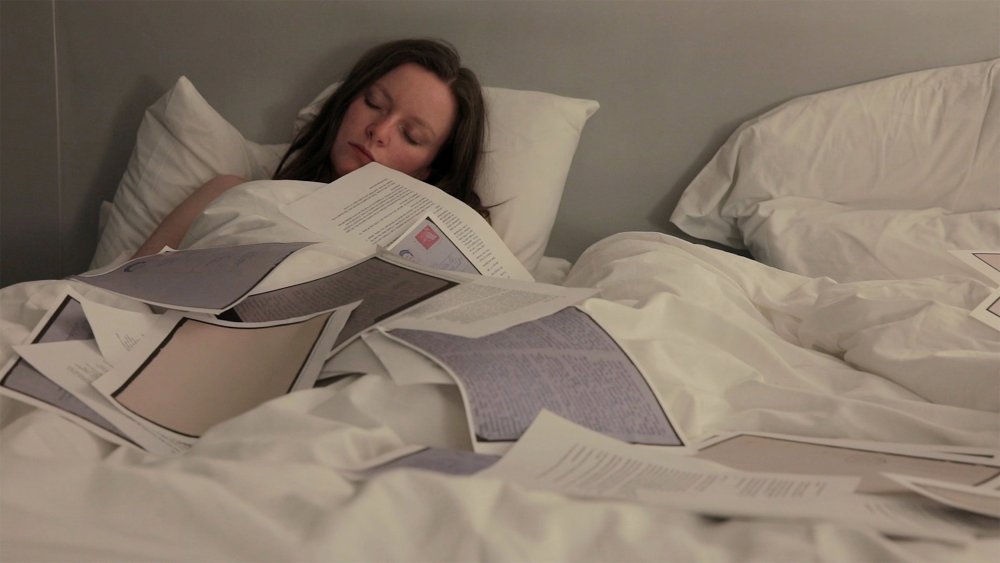If we humans are fortunate enough to survive the coming End of Days, film historians will surely look back at the official UK release schedule of summer 2020 and wonder: well, what happened there? As a previous global extinction event did for the lumbering dinosaurs, so too Covid-19 put paid to the Hollywood blockbuster; in its place, there come a thousand tiny things, green shoots that might from a distance resemble unregulated anarchy, some sense of what happens when society decides to take capitalism out of the equation, at least for a short while, because business as usual has become less safe than it might have been in the first place. The week's big MUBI premiere MS Slavic 7 is a mid-length (64-minute) Canadian production, the type of venture that rarely escapes the festival circuit, which keeps a foot on either side of that drama-documentary divide scuffed up so relentlessly over the past few weeks, and focuses exclusively on - wait for it, folks - a researcher turning over faded correspondence in a library. The researcher is a character, Audrey, played by an actress (Deragh Campbell), but the correspondence is apparently real and held in Harvard's Houghton Library, the handiwork of two post-War poets, one based in New York, the other (a distant relative of Campbell's co-writer/director Sofia Bohdanowicz) in Toronto. The title may assume sequel formulation (can I still see it if I've missed MS Slavics one through six?); it is, in fact, a library reference number, and the content could scarcely spirit us any further from the world of the fast and the furious.
Perhaps you can't enter into this field without coming over as academic in some way. During an early monologue, our heroine repeatedly reaches for the term "objecthood", which led this viewer to adapt the brace position, and though she concludes this speech by taking a great, frankly unscholarly swig of beer, my feeling was we were all going to need a few more of those if MS Slavic 7 was ever going to loosen up. Instead, Bohdanowicz's film settles into its own skin, and shapes up as an entirely idiosyncratic creation, existing within touching distance of mumblecore alumnus Aaron Katz's leftfield inquiries, but pushing on into more arcane territory yet. There are dramatic developments of a sort: fears of a missing letter, squabbles over ownership of a literary estate, run-ins with a snippy senior librarian who all but threatens to execute our heroine if she dares to use a pen (rather than the approved pencil) while taking notes. Yet the letters prove to be the real source of fascination, with their period postmarks and stamps, their choice turns of phrase, set out in elegant calligraphy on the light blue sides of an Air Mail one-sheet. They were the starting point of MS Slavic 7, you sense, and everything else was constructed around them; they were written in pen, everything else in pencil. (Like any researcher worth their salt, it's keen to show its workings.) That's why the film occasionally feels sketchy: some of the performers are a touch self-conscious, and there are spots where you feel the material hasn't been fully dramatised - or, rather, that it's been dramatised in a way that prioritises the filmmakers' own naggingly fey, 21st century experience over the mysteries within those missives. Yet there's something compelling in the idea (a woman trying to make sense of and peace with the past, armed only with pencil and OHP) which does hook you and keep you interested for the full hour; and given the precisely described milieu, I suspect researchers and anyone who spends more time than most in a library is bound to seize on MS Slavic 7 as if it were their very own Raiders of the Lost Ark.
MS Slavic 7 will be available to stream via MUBI UK from Thursday.

No comments:
Post a Comment